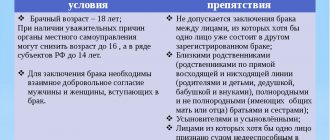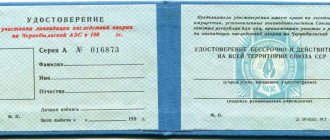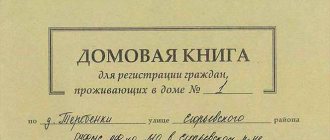The concept of “hereditary mass”
The inheritance mass is a set of rights and obligations of the testator, which relate to the property belonging to him, passing to the heirs by law or by will.
The assets of the inheritance are the rights of the deceased citizen and all property objects belonging to him. As for the liability, it consists of duties.
Rights that arise from contracts concluded during the life of the testator are subject to inheritance. Thus, according to the current legislation, the inheritance mass is formed taking into account the right to claim:
- the salary or pension due to the deceased;
- return of funds loaned by the testator;
- compensation for damage caused to the movable or immovable property of the testator.
When accepting an inheritance, not only the property and rights, but also the obligations of the testator are transferred to the relatives.
According to the law, if the deceased did not manage to fulfill his duties during his lifetime, the heirs must:
- repay money borrowed from a bank;
- repay debts under a receipt or under a loan agreement.
With regard to the payment of debts of a deceased testator, the law protects the heirs and excludes the return of debts in excess of the amount received as an inheritance. If the estimated value of the inheritance is 400,000 rubles, and the amount of the debt is 600,000 rubles, the heir is obliged to pay the creditor no more, but no less than 400,000 rubles.
What is not included in the hereditary mass
Not everything acquired by the testator can be passed on to his relatives or friends, and this must be taken into account when drawing up a will. This includes:
- Rights and obligations that cannot be separated from the personality of the testator (Article 1112 of the Civil Code of the Russian Federation). The heir is not obliged to pay alimony for the testator's child; make monetary compensation for the damage caused to them; receive funds for harm caused to the deceased during his lifetime.
- Property that is not owned by deed. Illegal elements of real estate are not inherited. An unregistered plot of land or an extension to a house without documents are not subject to inheritance either by law or by will.
- Intangible benefits (Article 150 of the Civil Code of the Russian Federation). The heirs are not covered by business reputation, honor and dignity, the right to integrity, life, health, freedom of movement, authorship and other purely personal things. Although they cannot be inherited, the heirs have the right to defend the good name and reputation of the deceased in court.
- Spouse's share according to law.
Even if these categories are indicated in the will, its execution will be impossible.
Objects of hereditary succession
The object of hereditary succession is inheritance. The list of inherited property is determined by the representative of the notary.
By inheritance, everything that was acquired by the testator during his lifetime and belonged to him by right of ownership can be passed on. The hereditary mass includes:
- real estate: private house,
- apartment,
- non-residential premises for various purposes,
- land plots with all outbuildings,
- garage and others;
- motor transport,
If you are wondering how a notary determines the inheritance mass, then the answer is as follows: to include something in the inheritance, a specialist checks the documents confirming the deceased citizen’s ownership of certain objects.
It is important that all property has properly executed documents. Familiarize yourself in detail with what objects of hereditary succession are.
What cannot be the object of inheritance
Not all property owned by the testator can be inherited. For example, if the deceased lived in the house and was its owner, but there is no documentary evidence of this, the heirs will not be able to obtain rights to this object of inheritance.
Also, according to the law of the Russian Federation, the hereditary mass does not include:
- premises and buildings built by the testator without permits, that is, without permission. Thus, you cannot inherit an unregistered extension to a private house;
- rights and obligations that are inextricably linked with the personality of the deceased: alimony, arising on the basis of a guarantee agreement, in connection with harm to the health of the testator;
- positions occupied by the deceased, his authorship, titles and other intangible benefits specified in Art. 150 of the Civil Code of the Russian Federation;
- part of the property that was acquired during marriage and belongs to the spouse of the testator.
It happens that a notary, due to insufficient documentation, includes in the inheritance objects that did not belong to the deceased citizen. In such a situation, you cannot do without going to court.
First, a statement is drawn up, on the basis of which a court hearing will be held. Only by a court decision will it be possible to exclude a cash contribution, an apartment, and so on from the inheritance mass.
Marital share
A citizen who has survived his/her spouse has the right to part of the jointly acquired movable and immovable property. This part is called the marital share and involves the separation of personal property from the estate.
According to the law, the marital share must first be allocated from the inheritance, and the remaining property can be distributed among the heirs.
The share due to the spouse is determined by the representative of the notary at the place of opening of the inheritance.
What is inheritance?
The hereditary mass, according to the Civil Code of the Russian Federation, includes the following (Article 1112 of the Civil Code of the Russian Federation).
Article 1112 of the Civil Code of the Russian Federation “Inheritance”
Property of the deceased and the right to its possession
At the same time, it is usually understood as cash, movable and real estate, securities:
- residential and non-residential premises: apartments, houses, dachas, office premises, garages, grocery stores, etc.;
- land plots and individual plots;
- vehicles such as cars, boats, boats, motorcycles, etc.;
- securities.
In most cases, proving ownership of large objects of the deceased is not difficult, since all movable and immovable property, in accordance with the requirements of current legislation, must undergo the registration procedure in the prescribed manner and have the appropriate documents confirming this. For example, ownership of an apartment can be confirmed based on an extract from the Federal State Information System of the Unified State Register of Real Estate, but ownership of a car can be proven based on entering information into the vehicle passport.
Read also: How to draw up a deed of gift
Property rights
That is, the rights that the deceased had before his death.
This is also usually understood as material benefit, profit that was due to the deceased from the use of any property. It is important to know that all of these assets pass to the heir along with all property:
- interest on deposit;
- dividends;
- funded part of pension;
- profit received from the use by other persons of products of intellectual labor;
- income from the rental of land, apartments, equipment, etc.
Property obligations
This should be understood as those duties that the deceased had to fulfill in accordance with the fact that he was the owner of some things:
- payment of utility bills in your own apartment;
- payment of mortgage payments on property purchased using borrowed bank funds;
- payment of taxes;
- obligations under contracts for the use of results of intellectual activity.
Based on the above, it will not be possible to inherit only property and renounce the rights and obligations that accompany it. As a striking example, we can cite the situation with the inheritance of an apartment, when the heirs refuse, are indignant, or even appeal against the need to pay the remaining utility debts that arose before the death of the testator.
Inclusion of property in the inheritance mass
If there is no documentary evidence that the inheritance material (apartment, share, car) belonged to the deceased, or the documents are drawn up incorrectly, it cannot be included in the inheritance.
If the heirs do not agree with the composition of the estate, it is possible to obtain the inclusion of certain property in it in court. To do this, within 6 months from the date of opening of the inheritance, you must file a statement of claim with the district court, in which you must indicate:
- exact information about the testator;
- information about all the property that was owned by the deceased, for example, the inheritance mass consisted of an apartment, a garage, a country house and a car;
- information about the notary representative who opened the inheritance case;
- all heirs and the degree of their relationship with the testator;
- information about property that was not included in the inheritance mass. It is worth indicating the reason for not including certain objects in the inheritance list;
- a request to include property in the inheritance;
- a list of the testator's title documents for the property.
At the court hearing, the judge will review the documents provided and make a decision.
If it is proven that the unregistered property actually belonged to the deceased, the court will grant the request to include the object in the inheritance.
Inheritance of certain types of property
Since the range of objects that are the property of citizens is very wide, the law provides for the specifics of inheritance of different types of property.
In ch. 65 of the Civil Code of the Russian Federation spells out how inheritance of certain types of property is carried out, in particular:
- rights related to the testator's participation in business companies and consumer cooperatives;
- enterprises;
- property of a farm member;
- things with limited turnover;
- land plots;
- unpaid amounts that were provided to the citizen as the main means of subsistence;
- property that was provided to the testator by the state on preferential terms;
- awards, honorary signs of state significance.
Read more about how certain types of property are inherited.
Nuances
There are some features of inheritance that you need to know:
- In the event of the death of a participant in a consumer cooperative, his share passes to the heir, as well as the right to participate in the cooperative. This norm is enshrined in the provisions of Art. 1117 of the Civil Code of the Russian Federation. Such an heir cannot be refused membership in the cooperative. But if there are several legal successors, then who to accept and in what order will need to be considered on the basis of the Charter of the cooperative or other constituent documents;
- If items with limited circulation are received as an inheritance, the successor must obtain permission to inherit them within one year. In this case, the named things will be transferred to the notary for storage. If, after one year from the date of death of the testator, permission has not been submitted by his successor, the specified things can be sold. The income from them will be presented to the heir, minus the amounts spent on the implementation itself;
- If land plots are transferred as an inheritance. In accordance with the provisions of Art. 1181 of the Civil Code of the Russian Federation, the hereditary mass will include not only the lands defined by the border, but also all buildings, plants, soil layer, objects located within their boundaries. If there are several heirs, the land can be divided, but only in a size not less than the minimum established for this category of land. If this cannot be done, such a plot cannot be divided;
- Unpaid amounts that were paid to the deceased for support can be claimed by his family members, children, parents and dependents. You can demand their payment only 4 months from the date of death. If the specified period was missed, inheritance of these amounts will occur on a general basis.
Read also: Registration of ownership rights to real estate
Article 1117 of the Civil Code of the Russian Federation “Unworthy heirs”
Article 1181 of the Civil Code of the Russian Federation “Inheritance of land plots”









